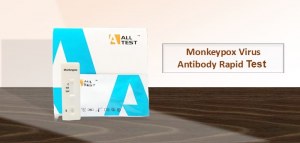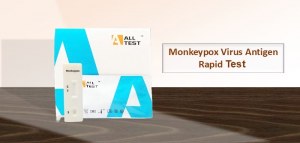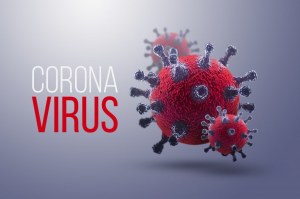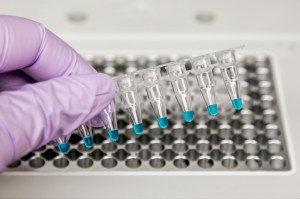qPCR for diagnostic

Monkeypox Virus Antibody Rapid Test
The Monkeypox virus antibody rapid test is a lateral flow chromatographic immunoassay for the qualitative detection of antibodies to Monkeypox Virus in whole blood, serum, or plasma to aid in the diagnosis of Monkeypox Virus infection. In this test, mouse anti-human IgG and mouse anti-human IgM are coated in the test line regions of the test respectively. During testing, the antibodies to monkeypox virus in whole blood, serum or plasma...
 |

Monkeypox Virus Antigen Rapid Test
The Monkeypox virus antigen rapid test is a rapid chromatographic immunoassay intended for the qualitative detection of monkeypox virus A29L antigen in human serum, plasma, whole blood, rash exudate and throat swab specimens. It is intended for use as an aid in the diagnosis of monkeypox virus infection. During testing, monkeypox virus antigen reacts with the particle coated with MPX A29L antibody. The mixture migrates upward on the membrane...
 |

CE/IVD qPCR Covid-19 test in 2 hours
QuantVirus Real-Time PCR Coronavirus Test - Accurately detects SARS-CoV-2 in positive subjects within 2 hours! Official kit for Covid-19 diagnosis in France
 |

New Ultra-Sensitive qPCR Gene Mutation Detection Kits
QClamp® Detects Rare and Actionable Cancer Mutations & Fusion Genes with ultrasensitivity New Technology : Xenonucleic Acid (XNA) Molecular Clamp Technology
 |

